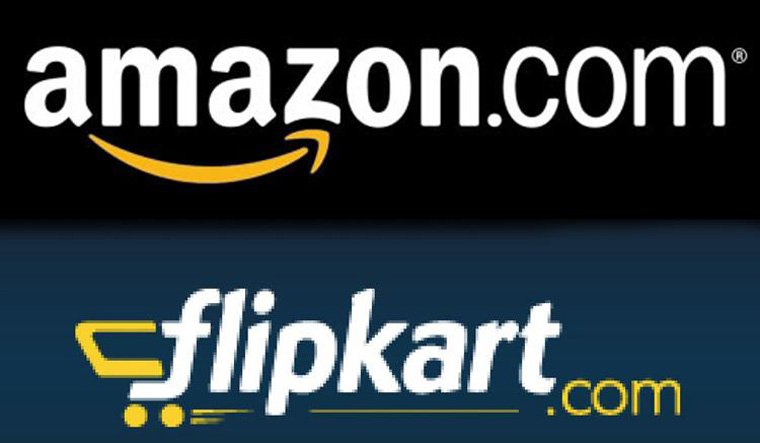With the Centre allowing neighbourhood shops to reopen, e-commerce giants Amazon India and Flipkart have urged the government to let them sell non-essential items during the lockdown to control the spread of coronavirus in India. The companies stressed on people's need for these products over a prolonged period and promised to deliver them in a safe and secure way, ensuring social distancing.
"E-commerce offers the safest way for sellers/retailers to serve the needs of citizens while ensuring social distancing. We are committed to keep citizens safe and urge the government to enable e-commerce to play its role in the joint fight against the pandemic by allowing the supply of all goods that people need over a prolonged period," NDTV reported quoting Amazon India's statement. The company said letting them sell all goods will help "hundreds of thousands of small businesses jumpstart their livelihoods".
"E-commerce can also support in easing the burden of piled up inventory of MSMEs and help in the delivery of these products to consumers in a safe and secure way while following the robust safety SOPs," said Flipkart in a statement.
Both Amazon India and Flipkart are staring at burgeoning losses as daily deliveries and their gross merchandise values have seen a huge drop. As a result, the growth of the online commerce market is set to fall this year, as per initial estimates of various industry analysts.
Going forward, the growth of grocery deliveries via e-retail platforms will be the only saving grace this year. Since groceries offer much lesser margins than other items such as mobile phones, the cost of delivery has been rising ever since. As a result, the balance sheets of e-commerce companies are expected to be strained this year.
The Centre had banned the sale of all non-essential goods from March 25, the day India entered into the lockdown mode. Later, the government announced that sale of non-essential goods by e-commerce platforms could be resumed from April 20. However, the notification was withdrawn just a day before the date on April 19, much to the online retailers dismay.


